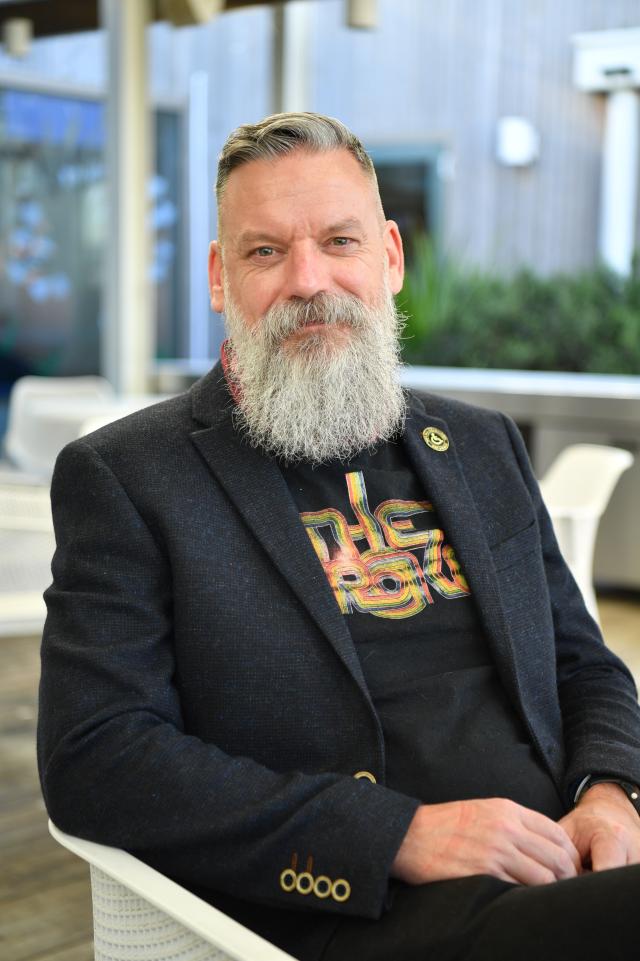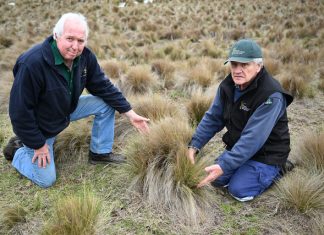
August 6
Some would say an ultra marathon is the ultimate test of endurance.
But Bob Carey-Grieve, who did the Ultra Perth in June, has endured a lot more than just a long run.
Between 2016 – 2019, he went through two strokes at the same time (one in the arm, one in the leg) , internal haemorrhaging, bowel cancer, six months of chemotherapy, and Lemierre syndrome.
The Ballan local said it was a “miracle” he was still alive after not going to the hospital for 12 hours while having a stroke.
“A piece of brain the size of a pea dies every 12 minutes when you are having a stroke so you have to do something about it very quickly,” Mr Carey-Grieve said.
August 5 – 11 is National Stroke Week, and the Stroke Foundation is urging people to think F.A.S.T – face, arms, speech, and time.
These are the four signs of a stroke, something Mr Carey-Grieve wishes he was aware of prior to the life-threatening incident.
“It’s really important to get that out there because when I had my stroke I didn’t know anything about those things and completely ignored all of them,” he said.
“At 42, I thought I was too young to have a stroke … but they can happen to anybody at any age.”
Mr Carey-Grieve, who works in Point Cook, delayed taking important action because he lacked one of the most obvious giveaways a stroke causes.
“A lot of people recognise that when somebody’s face is drooping that they are likely having a stroke, but my face didn’t so I made the wrong assumption that everything was fine.”
Following years of health complications, Mr Carey-Grieve made a “conscious decision” to get back on track.
“When you’ve got the best part of three years of constantly being in and out of hospital with one thing or another and you feel like the universe is definitely out to get you, it seemed like a good time to turn things around.
“I knew that I needed to work on my mental health and anxiety but I didn’t have the ability to sit still and meditate.”
That was where running came in. An inability to “sit still” was the catalyst for Mr Carey-Grieve’s first marathon, which helped eliminate his nervous energy and anxiety.
“I found running was a way to do that meditation. It’s essential now – it’s the one thing that keeps me grounded and together and I feel a whole lot better now than I did before the stroke.”
Mr Carey-Grieve said running is an exercise of not just the body but the brain.
“The very action of running, feeling the ground beneath my feet, feeling the tension in my body, being aware of where I am – that’s mindfulness,” he said.
“Concentrating on what you’re doing will keep you running for five hours.” For his 50th birthday, Mr Carey-Grieve decided to do a 50-kilometre ultra marathon and raise money in the process.
“I did a 50-50 split between the Stroke Foundation and Bowel Cancer Australia because everything has to be 50 doesn’t it,” he said.
Those who donated to the fundraiser got to pick a song for Mr Carey-Grieve’s running playlist, something he said they put more thought into than he did.
“People were being really thoughtful and asking about what kind of bpm [beats per minute] I wanted, which was more consideration that I had for it,” he said.
“They were giving me stuff to actually spur me on.”
Mr Carey-Grieve has turned a silver lining into a shining example of a positive lifestyle change and is a passionate advocate for the early prevention of strokes.






